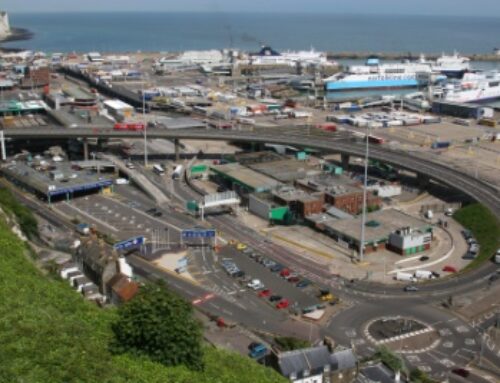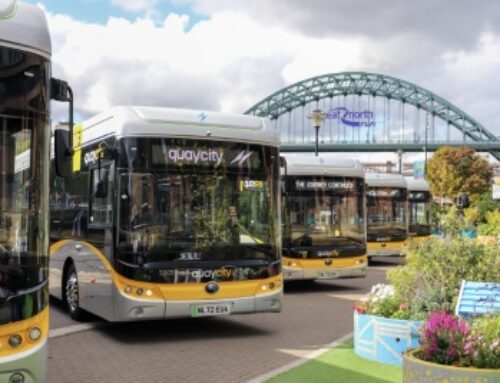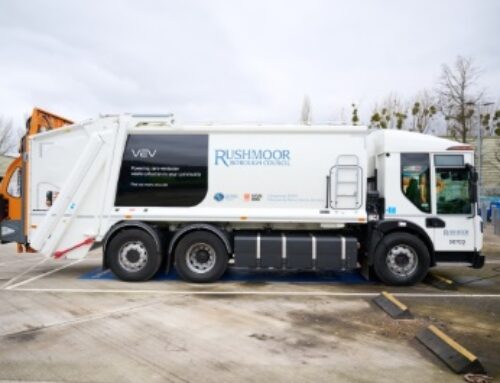SMMT in low-emission diesel uptake drive
 The Society of Motor Manufacturers & Traders (SMMT) used a special event last month to urge policymakers to redouble their efforts to encourage the adoption of modern diesel vehicles, in order to help reduce UK emissions levels.
The Society of Motor Manufacturers & Traders (SMMT) used a special event last month to urge policymakers to redouble their efforts to encourage the adoption of modern diesel vehicles, in order to help reduce UK emissions levels.
‘Improving Air Quality: The Commercial Vehicle Contribution’ was held in London on 11 February. The event showcased the latest low-emission diesel technology, while also opening a discussion on how officials, industry, business and passenger groups can collaborate to encourage new diesel uptake and formulate associated policies.
In a press statement promoting the event, SMMT said: “UK manufacturers have already invested billions of pounds in advanced diesel technology to meet the latest European emissions standard, Euro 6.
“These new diesel vehicles have filters that capture 99 per cent of harmful soot particulates, while exhaust after-treatments drastically reduce emissions of nitrogen oxides (NOx).
“However, despite these benefits, and the fact that Euro 6 technology has been an EU requirement for heavy duty vehicles since the beginning of 2014, less than three-quarters of commercial vehicles and just a fifth of buses registered in the UK last year were compliant, because of a loophole allowing bus operators in the UK to specify older vehicles for their fleets.”
SMMT points to real-world tests carried out by Transport for London along the cross-city 159 Bus Route, which it says indicated a 95 per cent NOx emissions reduction from new Euro 6 diesel buses over older counterparts. Full adoption of the latest Euro 6-compliant vehicles will allow air quality targets to be met by 2020, according to the European Commission.
Mike Hawes, chief executive of SMMT, said: “Industry shares public concerns about air quality, and is responding by investing billions of pounds in advanced diesel commercial vehicles that are 95 per cent cleaner than their predecessors.
“However, while modern diesel technology can make a vital contribution to cleaning up the air we all breathe, it cannot do the job on its own. The key now is uptake. It’s time to stop demonising diesel, and for all stakeholders to engage on this issue.”
Other speakers at the event included transport minister John Hayes, Greenpeace chief scientist Doug Parr, and local transport authority representatives from London, Manchester and Scotland.











